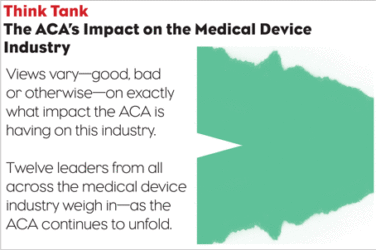The U.S. pharmaceutical industry is in the midst of an eventful period. Pharmacos are plagued by low growth, low reach and low trust from the government and society. But the industry is working hard to position itself for a better future that includes a healthy pipeline, fewer but more effective and efficient reps and a more customer-centric marketing mindset.
GlaxoSmithKline’s (GSK) recent announcements on rep compensation and physician payments should be seen in that context. These changes don’t come without attendant challenges, and other companies will observe the impact with considerable interest to see if they should follow suit.
GSK instituted the incentives change back in 2011 when it announced that no rep or district manager can be compensated on product sales in their geography. Subsequently, this condition was included in their Corporate Integrity Agreement signed with the Department of Justice. The notable change now is to extend this to all ex-U.S. markets, as well.
The merits of delinking financial gain from inappropriate promotion and encouraging a focus on only the customer’s needs is a change that is heavily debated.
One challenge: This change does not reward those who are good at appropriate promotion and removes an important performance management metric. Many companies want ethical behavior to be non-negotiable for everyone and the incentive payout is an optional benefit that some reps earn by skill and motivation. Alternative metrics, such as customer satisfaction, are inaccurate and expensive to frequently collect at the territory level, and management by objectives does not always create enough differentiation for the stars.
In order to track the right leading customer metrics, companies must go beyond customer satisfaction with reps and focus on the customer’s overall experience. A few companies have and will reduce the weight on sales in incentives, but many others are using data-driven refinements to target and plan design changes that strengthen the link between appropriate promotion and compensation. Expect most companies to retain a significant role for sales in IC plans, even as they become more sophisticated about including customer results.
Another GSK change was the gradual cessation of payments to physician speakers and attendees at promotional events and conferences. Some prescribers consider this a valuable channel—they receive new information and learn about new products from a credible peer. However, event spend has not achieved effective scale and comprises a small portion of the aggregate spend the Sunshine Act will track and make public. These are also less relevant for mature products. Reducing channel spend here is probably a good thing. The industry historically has not used meetings and events in a well-targeted way, resulting in poor attendance. Moving forward, companies will most likely try to optimize this spend, cut back for mature products and target this channel more narrowly, for example, as part of a specialty drug launch.
A broader trend in 2014 that underlies both of these changes: Increased customer control over promotional reach based on their personal preference. The rep must become more of a harmonizer of the right services—including peer-to-peer events—for the company to engage better with the customer and deliver better shareholder value. If additional companies do this, they should not view it as a pullback. Instead, this path should be pursued as a skill and mindset upgrade—an investment in the future.




